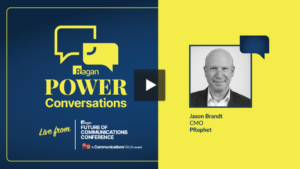The Daily Scoop: How media relations helped bring down CNN’s Chris Licht
Failed Trump town hall was a big blow to the news network.

Just five days after The Atlantic published an in-depth look at CNN Chairman and CEO Chris Licht’s troubled tenure at the network, including hours of on-the-record interviews with Licht, he was unceremoniously let go, The Guardian reported.
When members of the media described Licht turning CNN into “Fox News Lite,” he shrugged the comments off in The Atlantic piece.
“This is too important for me to be worried about what someone’s calling me or suggesting I’m trying to be,” Licht said in the article. “This is so mission-driven and so important. I genuinely am—I get mad, I get frustrated, but it doesn’t, like, affect me. Does that make sense?”
But public perception did matter, however.
Licht made a series of weighty decisions during his year in the post, including layoffs, firing anchors and more recently, an almost-crippling move to host Donald Trump during a town hall that went awry.
Where it went wrong
CNN explained in a recent article:
The Guardian reported that Licht apologized to CNN employees shortly after The Atlantic coverage.
“I met with Chris and he will be leaving CNN,” David Zaslav, chief executive officer of parent company Warner Bros. Discovery, informed CNN employees during a regular editorial meeting.
Zaslav was not thrilled about The Atlantic’s article, “Inside the Meltdown at CNN, which some feel was handled incorrectly, CNBC reported.
CNBC explains that Licht addressed the call during a staff meeting before his departure:
Licht said during the call he understands staffers’ frustration and is intent on earning his employees’ trust, said the people. He didn’t specifically speak to why he participated in The Atlantic profile, in which reporter Tim Alberta spent months with Licht, including joining him at the gym during a personal training session and attending backstage CNN programming rehearsals. Licht’s remarks were short, said the people, who were not authorized to discuss the matter publicly.
Licht talked about his journey in a statement.
“This was an exciting but incredibly challenging assignment and I learned a lot over the past 13 months,” he said in the CNN article. “I’ve been lucky enough to have had a successful, fulfilling career and I look forward to my next chapter. I wish the team at CNN the very best, always.”
What went left in this situation? Everything. Licht spoke, perhaps, too plainly to The Atlantic Correspondent Tim Alberta who interviewed him beginning last fall.
“This was the first of many on-the-record interviews that Licht had agreed to give me, and I wanted to know how CNN’s new leader planned to deal with another Donald Trump candidacy,” Alberta said in the article.
Why it matters: Licht’s massive failures were broadly highlighted in the article, which he spoke about frankly.
Media relations is a powerful tool if wielded correctly. It can raise up giants and bring them down just as quickly.
The latter was the case with Licht. While trust and transparency are fundamental tools that help PR pros and journalists navigate professional relationships, discretion and silence is golden, too.
Licht’s guard more than likely was down over the last handful of months and he built rapport with The Atlantic correspondent and trusted him. The Atlantic article came back to haunt him in a big way. The writing was already on the wall given CNN’s quick descent after the town hall, but the article was the nail in the coffin.
This serves as a powerful reminder of being careful what you say to journalists. No matter what rapport you may build with them, they are journalists — not your friend, not your therapist. Assume everything is on the record. Work with the executives in your organization to help them understand this, and if possible, be present in the room for their interviews so you can assist if they start to go too far.
Editor’s News Picks
- Coca-Cola gives gamers something to smile about with a new flavor that packs a punch online and off. Gamers are a demographic being hotly pursued by beverage and food brands right now. The “abstract flavors” are to connect gamers to limited-edition drinks and virtual experiences with hopes to draw younger consumers in the mix.
- Gen Z and millennials love brand films and consider them a “legitimate art form,” Morning Consult says. The genre of brand films are considered an art form like other films by 55% of U.S. adults. While 45% say they are just “extended ads” with minimal or no artistic value. Think Nike Inc’s “Air” or Mattel Inc.’s “Barbie.” A film on PepsiCo Inc.’s Flamin’ Hot Cheetos is coming out tomorrow, too.
- Famous broadcaster Pat Robertson died at 93 years old. Robertson made Christian Broadcasting Network into a global company and he put religion at the forefront of GOP politics, AP reported.
Sherri Kolade is a writer at Ragan Communications. When she is not with her family, she enjoys watching Alfred Hitchcock-style films, reading and building an authentically curated life that includes more than occasionally finding something deliciously fried. Follow her on LinkedIn. Have a great PR story idea? Email her at sherrik@ragan.com.
COMMENT
PR Daily News Feed
RECOMMENDED READING
Tags: The Atlantic







